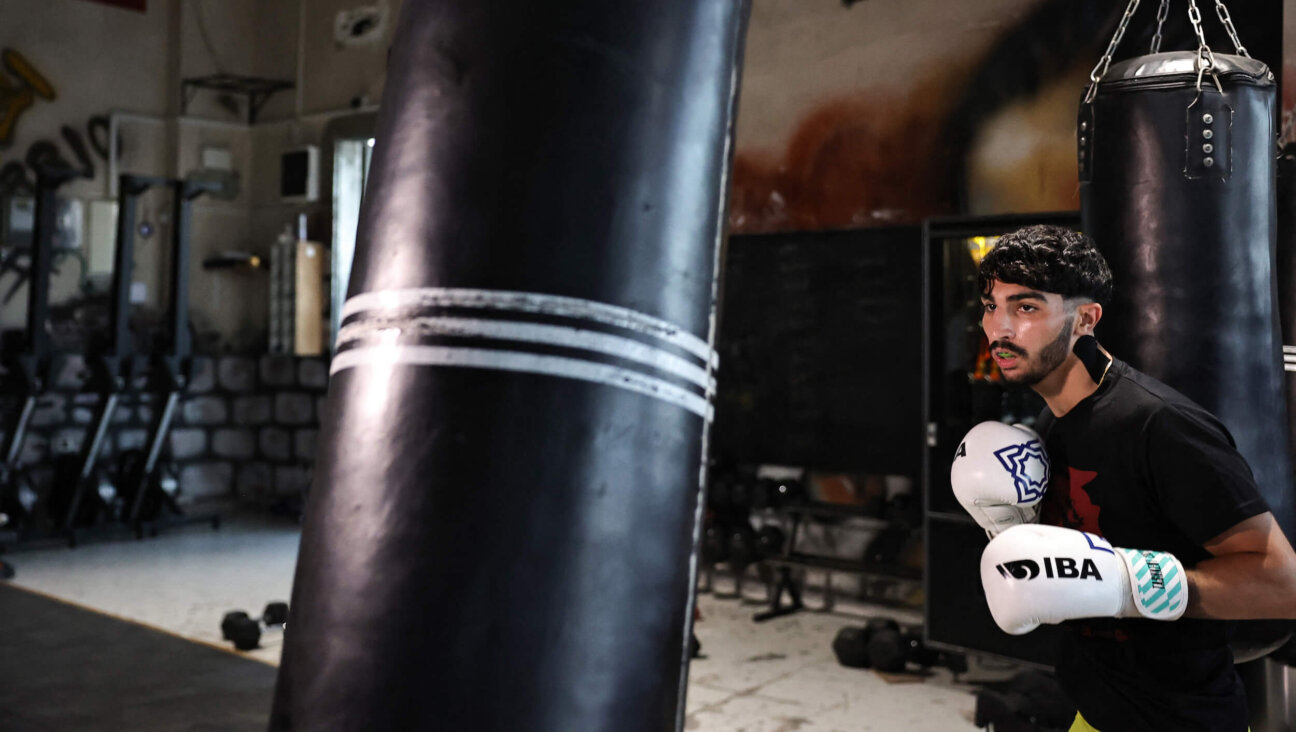Editorial | Coronavirus is the new normal. Let’s make it Jewish.

Image by iStock
Our office gathered for drinks at 5 p.m. on Thursday. By “gathered,” of course, I mean we all clicked on a Google hangout link at the same time from the homes where we’d been holed up all day. I poured a little glass of Maker’s Mark; our newest employee hugged a big ceramic mug of tea. L’chaim.
One colleague had her toddler daughter on her lap. Another struggled to unmute. But in the end it kind of worked. I think we’ll do it again. What choice is there really?
I’m about community — as a mom, as a boss, and especially as a Jew. Being in community is what makes us human; the ways in which we join together for common purpose is what makes us Jews.
We pray in groups of at least 10. We trek to shiva calls after people die, bring meals to the sick, welcome the stranger. We have big weddings, spread the mitzvah of dancing for bride and groom. We study in pairs.
As actual communities have been replaced in so many sectors by virtual ones, Jews have persisted in maintaining these IRL connections. My personal version is having hordes over to our family sukkah, throwing a huge Hanukkah party with myriad menorahs, running a pop-up brunch cafe at our synagogue, and last weekend — was it just last weekend? — hosting the cast party for the Purim shpiel my husband directs.
As a public service during this pandemic, the Forward is providing free, unlimited access to all coronavirus articles. If you’d like to support our independent Jewish journalism, click here to make a donation.
Jewish life is like an inverse pandemic. The spread of goodwill between strangers rather than the transmission of illness. Social cohesion, not social distancing.
This thing that makes us special is what makes us so vulnerable now. How do we keep our strength, maintain the meaning, protect the essence of our Judaism without being together? I am not afraid of getting sick. I am afraid of being afraid. I am afraid that we will not be able to adjust to the new normal — or that we’ll adjust too easily, without really replacing what we’ve lost.
In the middle of our 5 p.m. whiskey, the news alert came announcing that the NCAA had canceled its tournaments, abruptly ending the amazing run of the Yeshiva University basketball team. Then I saw one for Disneyland: closed. Broadway is dark for a month. Ohio schools shuttered.
My email in-box brought it closer to home. My daughter’s friend Alex was canceling her Bat Mitzvah party; the service would be limited to immediate family, but there would be a livestream. There was also one from the National Federation of Temple Youth, inviting us to bring our art supplies for an “interactive” Kabbalat Shabbat of “worship, community and art” via Zoom. Similar stuff was flowing everywhere on social-media.
Soon, this news would be compiled in a guide for readers of the Forward – where we are, in our own way, building community, too. It’s a community rooted in storytelling and debate, information and insight, a community anyone can join. It occurred to me there’s an opportunity in this crisis, to connect people who are far apart, socially distant event.
For rabbis and teachers who have already been experimenting with streaming, suddenly a much larger audience will be seeking their wisdom. And for individual Jews who have been searching for the right community, suddenly we’ll be surrounded by options far beyond what happens to be in our neighborhoods.
If this is the new normal, let’s make it a meaningful normal, a Jewish normal.
The modern Orthodox community in New Rochelle, ground zero for the outbreak in New York, has already set an inspiring example. They reacted not with panic about the disruption but with creative adaptation. Communal havdalah via video chat. Squads of teenagers speed-reading the Megillah door-to-door. Kosher Chinese delivery that does not quit.
I was supposed to be hosting a breakfast conversation at Park Avenue Synagogue in Manhattan on Friday morning about the (endless) Israeli elections with Yohanan Plesner, president of the Israel Democracy Institute. He had to cancel his trip, so now we’re trying to schedule a Zoom conference call next week instead . Upside: many more people can join in, and maybe it’ll be a little bit of a distraction from the pandemic.
L’chaim — to life, now with coronavirus.
Jodi Rudoren is the editor in chief of the Forward.
A message from our editor-in-chief Jodi Rudoren

We're building on 127 years of independent journalism to help you develop deeper connections to what it means to be Jewish today.
With so much at stake for the Jewish people right now — war, rising antisemitism, a high-stakes U.S. presidential election — American Jews depend on the Forward's perspective, integrity and courage.
— Jodi Rudoren, Editor-in-Chief
























